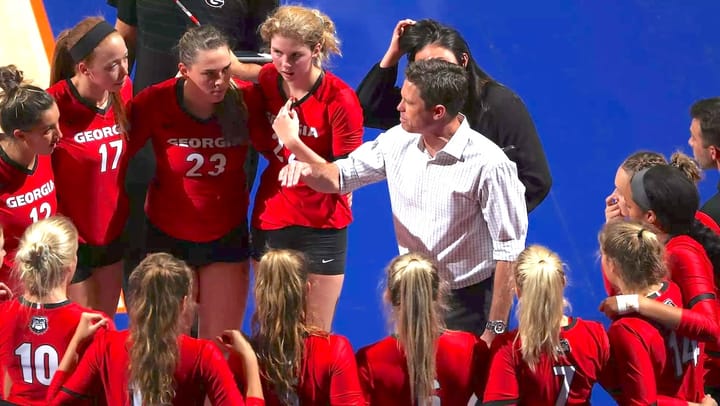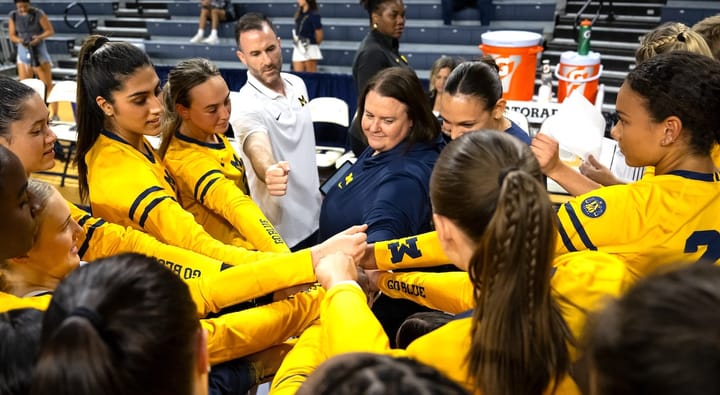38. Dave Shondell:'High expectations demands tremendous responsibility'
In this Masterclass we feature Dave Shondell. Dave is the head coach of Purdue University and a 2 times Big Ten head coach of the year. Together with his staff he firmly secured Purdue volleyball to be among one of the best programs in the United States.
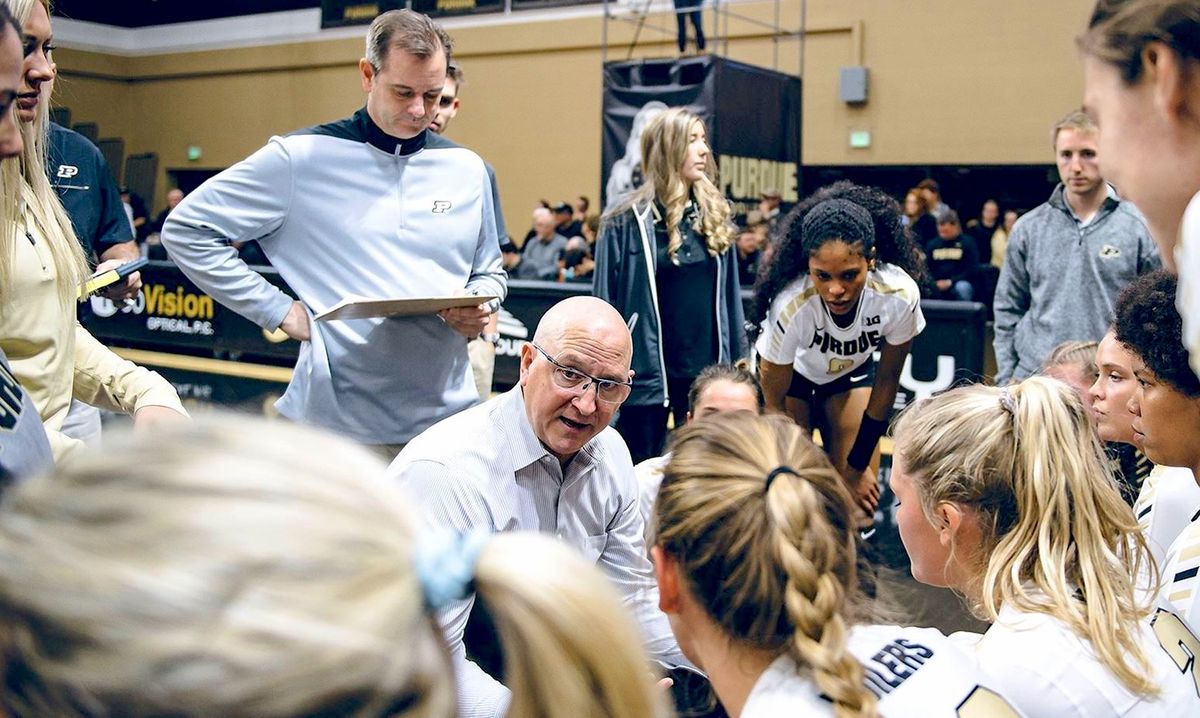
We at volleybrains thoroughly enjoyed our conversation with Dave, you'll find out that he is a true promotor of our game.
Dave talks about the future of male and female volleyball, how he goes about making recruits feel a part of Purdue's program, how he changed as a coach over the last years and why, how he goes about preparing his team for the next game and so, so much more.
There are 17 subtitled video clips (45 minutes in total) in this Masterclass.
Enjoy!
Enter Dave.
Dave, why did you decide to commit to being a professional volleyball coach? What pushed you towards that decision?
Well, I grew up in a volleyball family.
My father was one of the real pioneers of the game in this country. He started the men's volleyball program at Ball State University. Ball State and UCLA were the first two men's programs in the United States. He was also a professor of physical education.
So I grew up around all these teachers and coaches. I watched my dad be so positive and enjoy life so much. And then I had an older brother who was three and a half years older. Who also was in teaching and coaching.
They made it look so easy and it just seemed like it was such a great occupation, great career choice. I didn't know if that was what I was going to do, but I just kind of fell into that.
When you have an older brother, like I had, you follow him. And I did a lot of that. Played a lot of the same sports that he played and eventually got into teaching, in coaching right out of Ball State.
I played at Ball State University for my dad. And when I graduated there, I began teaching physical education at the elementary and middle school level and coaching.
But I really didn't think a lot about it. I was around so many great coaches and so many tremendous teachers that it just seemed like the thing for me to do.
They all had purpose in what they were doing. And I was just blessed that I was around so many of them that I think a lot of that rubbed off on me.
I was able to go out and have some success early that led to more success down the road. But originally I wasn't a professional coach.
I was a teacher and then the coaching was just kind of on the side. I was coaching volleyball, basketball, track and field. I was coaching baseball. I was coaching softball. So I was doing a lot of different things while I was teaching in my early years.
But my goal, my dream, was always to coach Division 1 volleyball.
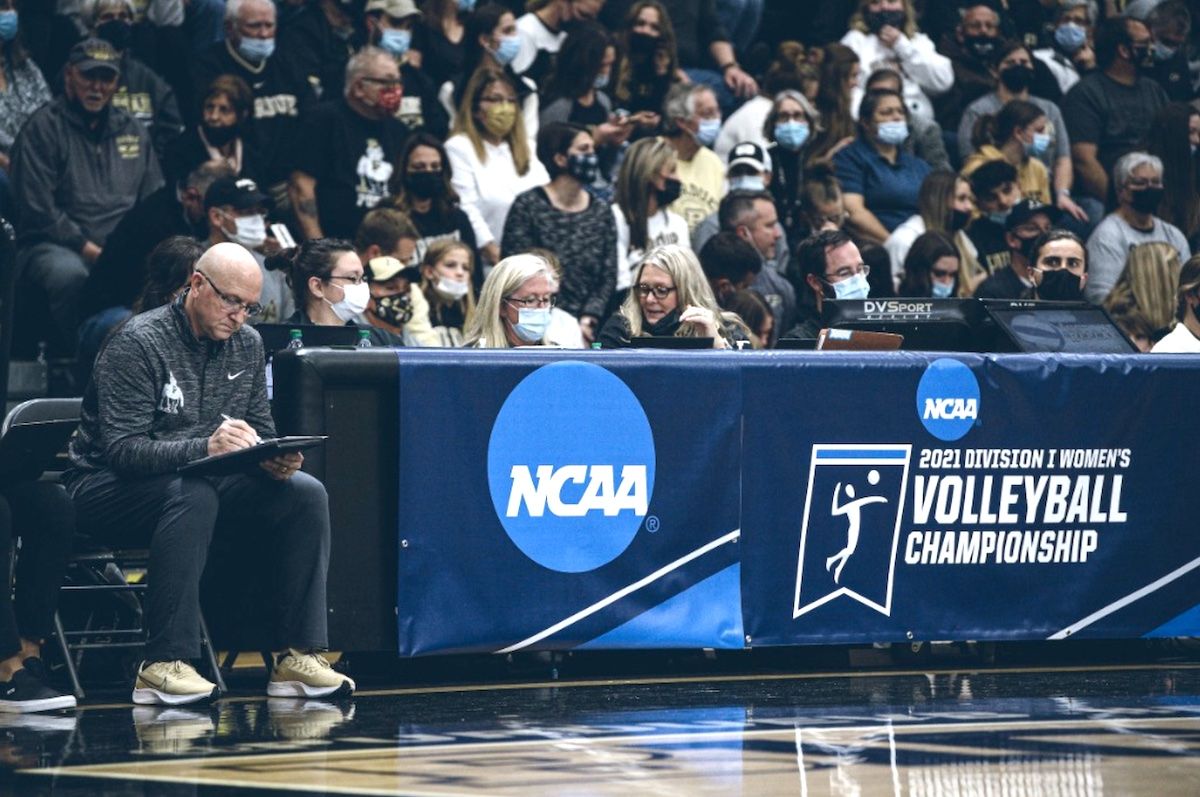
I felt like that was, the dream job. And after 22 years of teaching and coaching, I finally was able to get the opportunity.
I never thought it would go like it went though. I went straight from high school, coaching high school and club, to coaching in the Big Ten conference. And a lot of people second guessed that decision by Purdue to bring in this coach who had never coached at the collegiate level before, and then come to the Big Ten.
But I've always believed coaching is coaching. There are tons of coaches at the high school and club level in America that can coach at the Division 1 level.
I think that there's a misconception that, just because you haven't been in college, you're not a great coach.
Some of the best coaches in the world are not coaching at the college level or the pro level. They either don't wanna do that or they just haven't gotten there yet.
But I always knew once I started teaching and coaching that this was where I wanted to go.
I was just very fortunate that an athletic director in the Big Ten had the guts to make that decision and allowed me to come to Purdue.
What advice would you give yourself as a starting coach? An advice that is so clear and logic for you now, but that you had to develop over the years.
It's not about me.
When I was working with the Munciana volleyball club, which is one of the better clubs in our country. You'd have all these guys that were coming out of Ball State, out of the university there.
It was all about how well 'they' could do and as you mature as a coach, you realize it's not about you.
It's about developing players and developing people. I've been coaching for about 44 years and it's absolutely all about the athletes.
And sometimes I have to remind people on my support staff of that, because they get upset about something... And I say, we're not here if it's not for those 17 players. We're not at Purdue. We don't have a job if it isn't for the student athletes.
I've always felt like I was coaching and teaching for the right reasons. But the competitive juices sometimes takes coaches and makes them feel it's all about how many matches 'they' win or how many championships that 'they' can win. And what do they look like to the crowd. If they're there coaching at those particular, important matches et cetera...
And so as you get older, you get over that.
And young people, the sooner you do get over that, the better coach you're gonna be and the better teacher of the game and the better mentor you'll be.
Don't worry about those type of things, just do your job.
And you can learn more from the players sometimes than anybody else. You need to listen more to your players.
Again, I didn't do a lot of that when I was young. I do a lot of it now.
This is a relationship business. You're coaching at the college level, these are grown women, they want to be respected and they want to have relationships.
And if they feel like, there's a trust factor between you and them, you're gonna get so much more out of them and their experience is gonna be so much better.
So I think understanding that what we're doing is to try to develop people, develop in our case young women to be able to go out, whether it's to go like Annie Drews and play on the USA Olympic team and win the first gold medal.
Super. If they're gonna go be the best nurse they can be in the Indianapolis hospital system.
Great. But our job is just to get them to where they can have a great career and they can love life, the way that we do.
How do you go about building that relationship with your freshmen? There is so much going on, putting high expectations on themselves, new inputs, new environment.
It's an absolute process that I think you start well before they get here. You're communicating with them and trying to help them get ready and developing that relationship.
Sometimes my assistant coach, who's my recruiting coordinator, who does a great job, Kathy Jewell, she doesn't like me to go out and spend so much time watching the players who are already committed to Purdue.
To me, that's the most important thing, to let them know that just because they committed, they're not on their own. I'm still gonna be there.
And I'm getting to know them, by watching them play and then obviously once they sign the national letter of intent, we can communicate with them.
And once they get to a certain age, I can talk to them when tournaments are over and I can get on the phone and call them as they're driving home.
Those things are huge.
You don't spend your 80 days of recruiting, that the NCAA gives you, always chasing players.
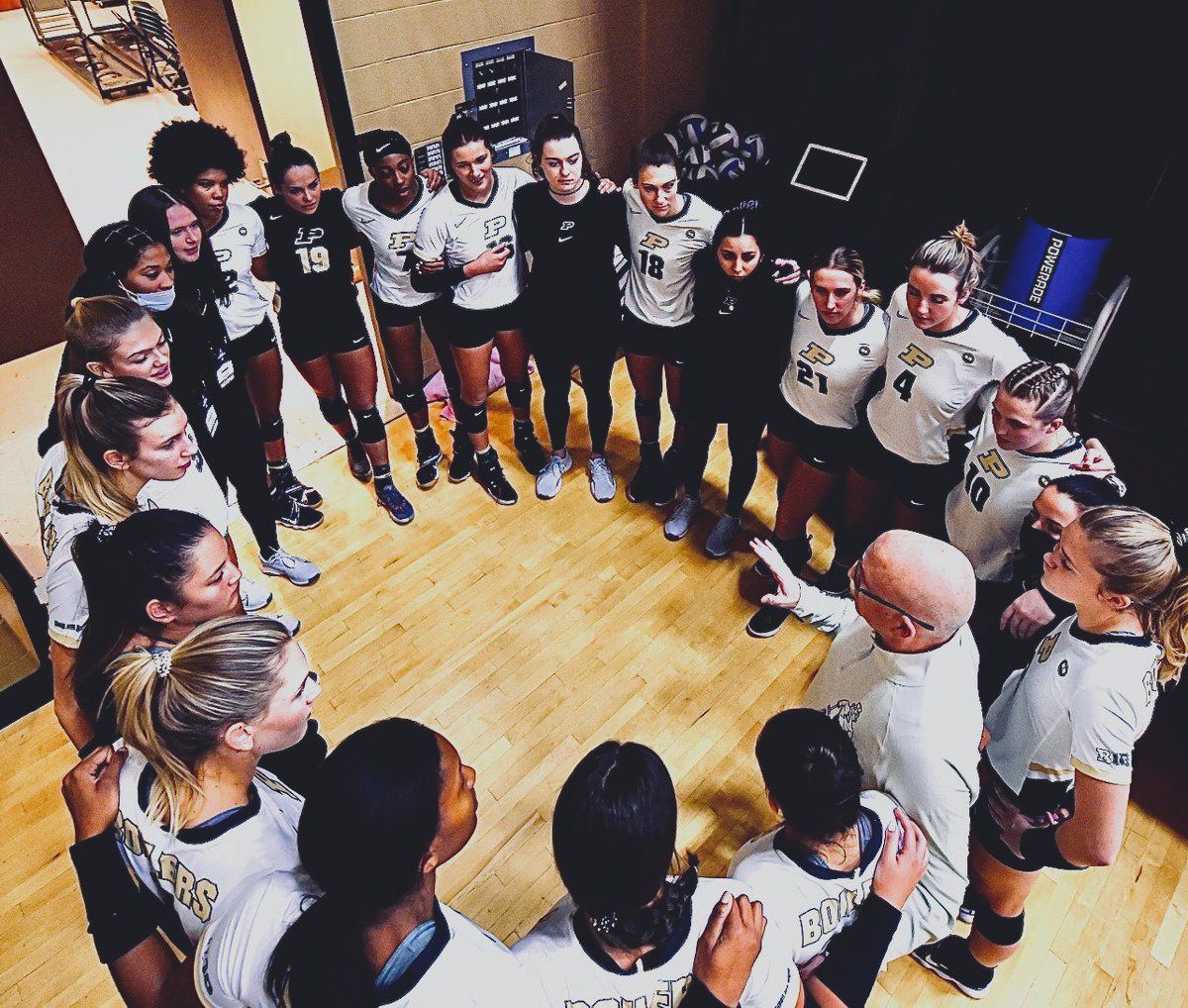
You've gotta make sure that you're building the relationships with those players that have committed to you and to your program.
And it's always a lot more fun, of course, watching players that you've already got; than going out sitting next to 15 other Division 1 coaches and trying to figure out how you're gonna get the next one. But there's a blend of what you have to do of course.
But I think it's important that those players become more and more comfortable before they get here. Otherwise it is gonna be a difficult situation for them once they arrive.
In preparing our conversation I watched an interview where you talked about recruiting and your efforts in finding that player which isn't yet that 'All American', but a player with the right amount of talent and grit who could potentially grow or be developed into that All American college status.
How many people can get those All Americans to their school or to their program? I mean, it's not gonna happen that often.
I'll just be honest with you. If I'm out recruiting and I walk on a court where there's the kid from California or Texas or Florida, some place that's not as familiar with West Lafayette, Indiana.
And I see, I won't name names, but I see 4 or 5 of the top programs in the country on that court...
I may not waste a lot of time because that kid's getting way too much attention. She's too popular with the top coaches, she's already proven what kind of an athlete, what kind of a player she is.
I've gotta go find the same athlete but that nobody knows about. And then just have the confidence that we can develop that player, when we get them.
And looking for other things too, like you mentioned... is she a baller? I mean does she just play her heart out all the time? Does she understand the game?
Some of these things that can take a really good player to become great. Where a really great athlete may not have some of those tendencies or skills and they never get there.
We take a lot of pride in who the person is kinda like what you talked about. Who are they? What makes them special?
And then we just have to get to the gym with our staff and do a better job than what most of the rest of the country's doing.
VB: And it's also not black and white. Of course. At 18-19 you still develop so much, but somebody that's gritty at 18, they will stay that way.
Yeah. And the other thing is, right now, we're having to make these decisions on these players so fast.
In America, they changed the recruiting process to where you can't talk to a player until June 15th before their junior season, their junior year in high school. And so you may start making these phone calls with these players on June 15th, you might have a list of 15 to 20 players, you're gonna talk to. You've watched them play, you've talked to their club coach, their high school coach.
But you've never talked to them before. But many of them are expecting to get an offer from you when you talk to them on the phone the first time.
How do you know what you're getting? And how do they know what they're getting?
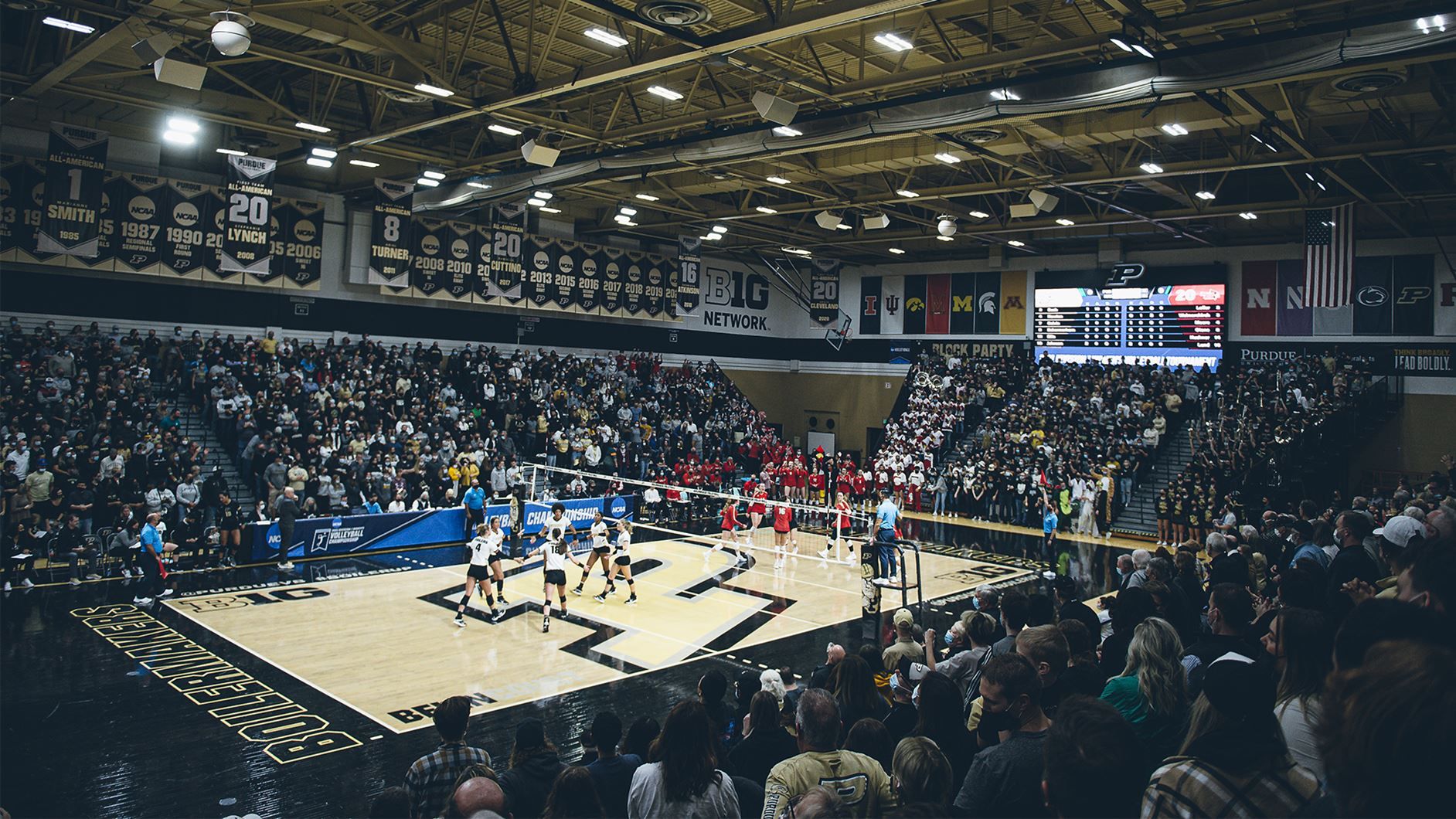
In some ways I love the fact that we don't have to recruit 14 year olds, which is what we were doing before. That was really sketchy. Now you can watch them mature and develop, but you still have to make those decisions too soon. And they're making their decisions too soon. Some of them don't even go on two visits, they go on one visit and they make their decision.
So it's interesting, you know, trying to get this right is a really important part of developing a program.
Getting the right people on the bus is, is still the number one concept.
You've gotta get the right people in your program.
As a complete outsider it's interesting to see what is happening with recruiting, the transfer portal and NIL all in the mix right now. For you coaches, being a representative of an institution and trying to recruit players, it must be a hot mess.
Well, the NCAA has to get control of that situation very fast. In women's volleyball, it hasn't become a big deal. The NIL, name image and likeness, has not become huge like it has in football, in men's basketball.
But it's a matter of time before it starts really being a factor.
I've not had a single recruit ask me about NIL, not one.
I think that the Big Ten institutions are in an ideal spot for women's volleyball to be able to enhance their experience with NIL. Because it's the most popular game for women in our league.
The Big Ten is just a dominant conference. We're really in a good spot. And with the success that our program has had in the last 10 to 15 years, we're gonna be able to do okay on that.
I'll tell you a funny story.
I have a new lake house not too far from here. And I just invited a bunch of people over for a social function. I've smoked a couple briskets and my wife had some side dishes and everything, so we had probably 30 people over there. And they're all having a good time...
And so then I said, 'oh, wait a minute, the real reason you're over here is we're starting the Purdue volleyball collective.' :-)
And what a collective is, it's this group of big money people, that are gonna start dropping money into the program, by dealing on their own. And obviously they all thought I was serious and I was not. But that's what's going on.
In men's basketball, they're starting these collectives, but yet the coach is not supposed to be aware of what the people and the collective are doing.
So how are they gonna know even which people they want to give the money to, if they haven't had, you know, some kind of communication with the coach?
So the whole thing screwed up.
I know the NCAA is now finally starting to try to talk about it and figure out that you just can't give somebody $50,000 without them doing somewhat $50,000 worth of work for it.
What is $50,000 worth of work, right now? Nobody knows.
I think what you'll see in sports like volleyball is, they're gonna do charity work, they're gonna do camps. They're gonna do something to get that money.
In sports like football and basketball, you may have to look really hard to find out what they're doing to receive those pay checks.
I read that the Purdue women's volleyball program only had a couple of transfers happening in the last 15 years, also that speaks to the program's intention of course.
I hope the world doesn't change completely with the transfer portal. It's looking like it is. It's becoming a free agency very, very quickly.
But I still think that places like Purdue...we'll generate loyalty. We'll generate the desire to stay.
That won't change overnight. That's a result of the culture of your program.
Everyone will talk to you about, 'our culture is family oriented', well, prove it! Prove it by how long you're gonna stay there and prove it by do your people staying and by you taking great care of them.
And there's times where, you know, there are some coaches that would've probably encourage people to leave, if they were in my shoes.
I'm not doing that. I don't think that sends the right message to the next player that wants to come to Purdue.
Do you have a particular goal? Maybe a goal that you already reached or a goal that is so hard to reach that it gives you daily motivation?
It's a simple question, but the answer is complex.
But I think the simple version would be, I want to create the best volleyball program for college women in America.
And people will say, well yeah, you haven't won a national championship and they'd be right.
